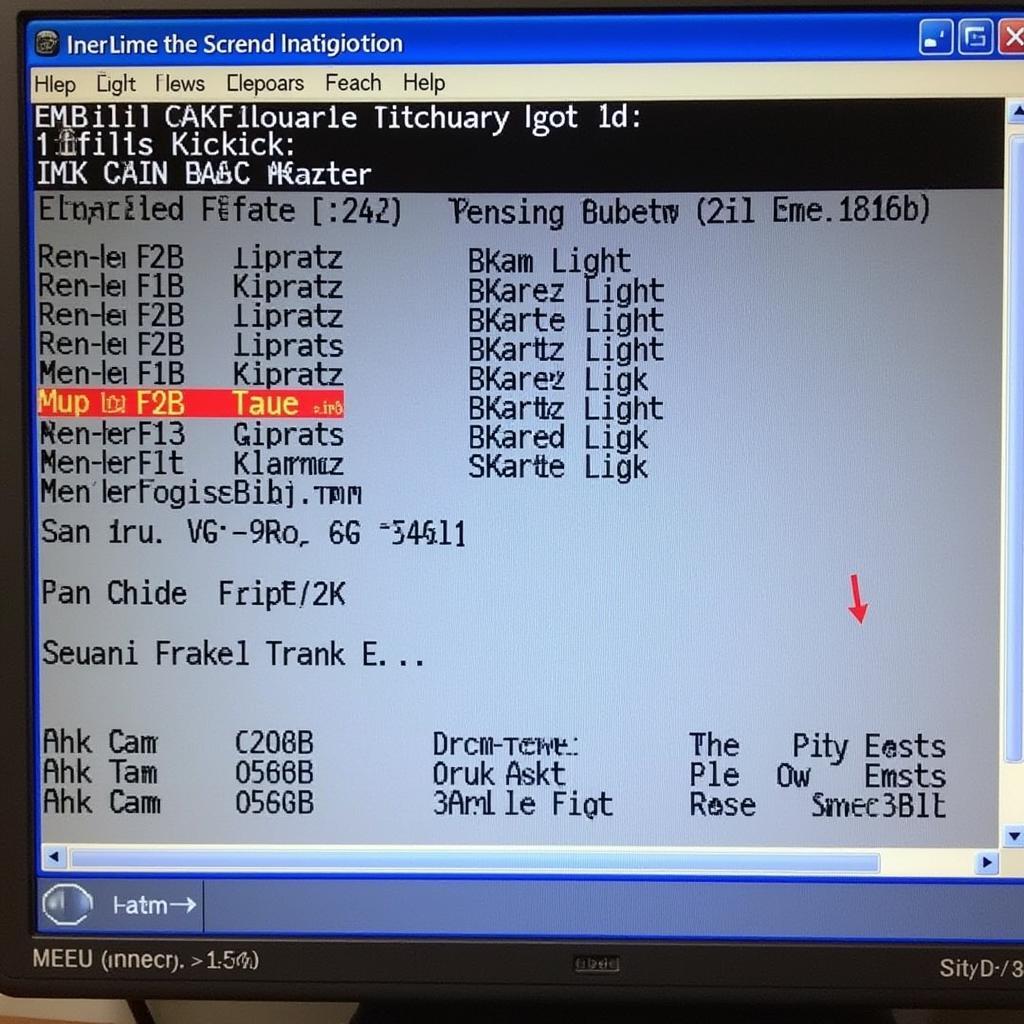Experiencing an “air brakes low pressure warning” light flashing on your dashboard can be a nerve-wracking experience, especially if you’re unfamiliar with the air brake system. This warning is a serious safety concern, indicating a potential problem with your vehicle’s braking system, and should never be ignored. While the issue might seem complex, understanding its potential causes and knowing how to react can save you from dangerous situations on the road.
What Does the Air Brakes Low Pressure Warning Mean?
Air brakes are commonly found on heavy-duty vehicles like trucks and buses, using compressed air instead of hydraulic fluid to power the brakes. The “air brakes low pressure warning” light signals that the air pressure in the system has dropped below a safe operating level. This means your vehicle’s ability to stop effectively is compromised, putting you and others on the road at risk.
Common Causes of Low Air Pressure in Brakes
There are several reasons why you might encounter an air brakes low pressure warning. Here are some of the most common culprits:
- Air Leak: A leak in the air brake system, which could be in the air lines, fittings, air compressor, or even the brake chambers themselves, will cause a pressure drop.
- Faulty Air Compressor: The air compressor is responsible for building and maintaining the air pressure. If it’s malfunctioning due to wear and tear, a faulty belt, or electrical issues, it won’t be able to maintain adequate pressure.
- Worn Brake Shoes or Pads: Excessively worn brake shoes or pads can lead to the need for more air pressure to engage the brakes, potentially triggering the warning light.
- Problem with the Air Dryer: The air dryer removes moisture from the compressed air, preventing corrosion within the system. If it’s not functioning correctly, it can restrict airflow and lead to low pressure.
- Frozen Air Lines: In colder climates, condensation in the air lines can freeze, blocking airflow and causing a pressure drop.
What to Do When Your Air Brakes Low Pressure Warning Activates
If the “air brakes low pressure warning” light comes on while you’re driving, it’s crucial to act quickly and safely:
- Stay Calm: Panicking will only worsen the situation.
- Find a Safe Place to Stop: Gradually slow down and pull over to the side of the road or a safe location as soon as possible. Avoid sudden braking.
- Turn Off the Engine: Once safely parked, turn off the engine to avoid further damage to the air brake system.
- Check the Air Pressure Gauge: Most vehicles with air brakes have a pressure gauge on the dashboard. Check the gauge to determine the severity of the pressure loss.
- Do Not Continue Driving: If the air pressure is significantly low, do not attempt to continue driving. It’s extremely dangerous.
- Call for Assistance: Contact a qualified mechanic or towing service to diagnose and repair the problem.
 mechanic inspecting air brake system
mechanic inspecting air brake system
Preventing Air Brake Problems
Regular maintenance is key to preventing air brake issues and ensuring your safety on the road. Here are some preventative measures:
- Daily Air Pressure Checks: Get in the habit of checking your air pressure gauge before each trip.
- Regular Inspections: Have your air brake system inspected by a qualified technician at least annually or as recommended by your vehicle manufacturer.
- Drain Air Tanks: Moisture buildup in the air tanks can lead to corrosion and malfunctions. Drain your air tanks regularly, especially in humid climates.
- Address Leaks Promptly: If you notice any signs of an air leak (hissing sounds, slow pressure buildup), address them immediately.
- Winterize Your System: If you operate in cold climates, take steps to winterize your air brake system to prevent frozen lines.
Remote Diagnostics for Air Brake Issues
Advancements in technology offer innovative solutions for diagnosing and addressing air brake problems. Remote diagnostics and software solutions can provide valuable insights and even facilitate certain repairs remotely.
For instance, with remote diagnostics, a qualified technician can connect to your vehicle’s electronic control unit (ECU) wirelessly and access real-time data from the air brake system. This allows them to pinpoint the root cause of issues like low air pressure, identify faulty sensors, and even detect leaks. In some cases, they may be able to remotely adjust system settings or initiate software updates to resolve the problem.
When to Seek Professional Help
While some air brake issues might seem minor, it’s crucial to remember that even a small problem can have significant safety implications. Here are instances when professional help is absolutely necessary:
- You can’t identify the source of the air leak.
- The air compressor is not functioning correctly.
- You suspect damage to brake lines or other components.
- You are not comfortable working on the air brake system yourself.
Remember that working on an air brake system requires specialized knowledge and tools. Attempting to fix complex issues yourself without proper training can be dangerous and could lead to further damage.
Conclusion
An “air brakes low pressure warning” is a serious matter that should never be ignored. By understanding the potential causes, knowing how to react safely, and practicing preventative maintenance, you can minimize the risk of encountering this issue on the road. If you’re ever unsure about the condition of your air brake system, it’s always best to err on the side of caution and seek help from a qualified professional. Your safety, and the safety of others on the road, depends on it.

